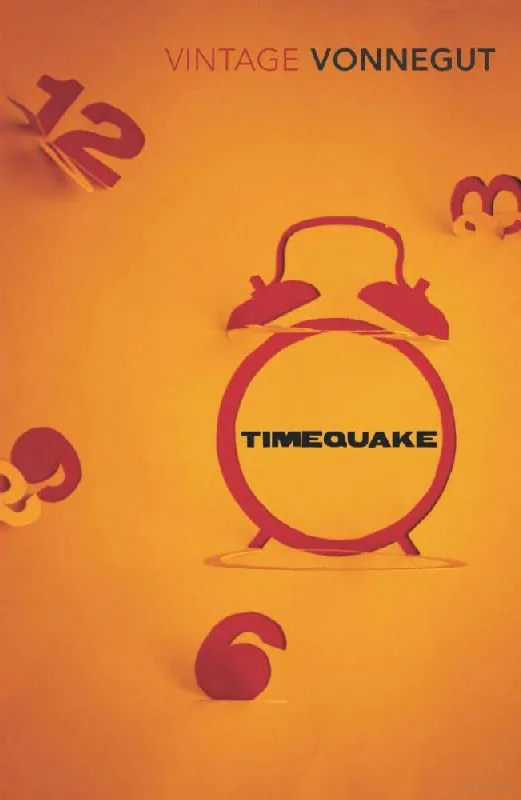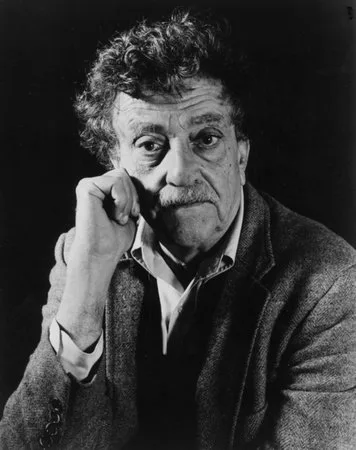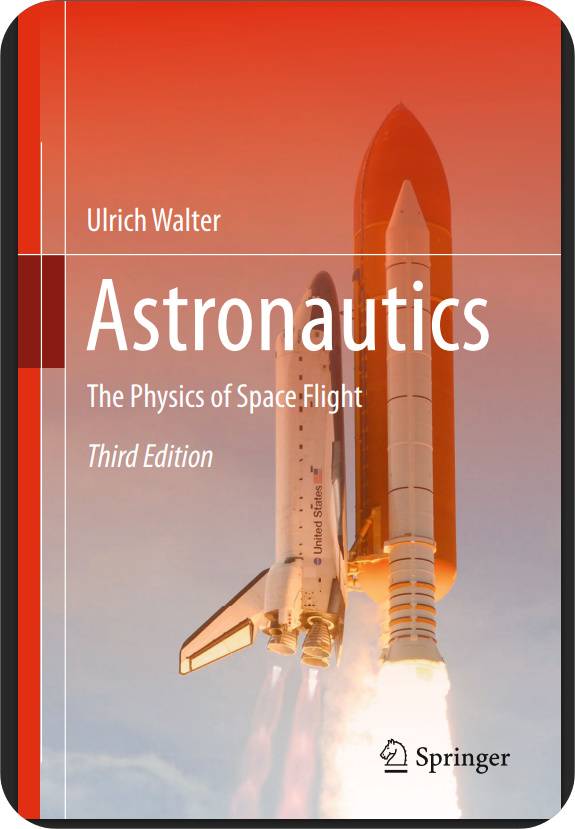
“Timequake” by Kurt Vonnegut is a mind-bending book that was first published in 1997. The book explores the concept of “free will” and what it means to be human under the influence of relentless march of time.
Vonnegut expounded dark humor and deep insights in the manner of “automatic writing”. Although, the book’s writing is done within the theme of “timequake”. A thought experiment, that is, everyone has to relive the same ten years of their lives over again because there happens to be a glitch in the universe.
And during the tenure of re-living, people will have no option of “free will”, hence no control over their actions. Everything gets repeated as if they were in auto mode. It’s like being stuck on a never-ending repeat button.
The author employs this weird concept to explore big questions like free will and what it means to be human.
Blending autobiographical elements with the power of storytelling
Kilgore Trout is name of the protagonist in the novel. He is a fictional science fiction writer created by Vonnegut himself. He is visited by an older version of himself who explains the nature of the timequake.
“Only when people got back to when the timequake hit did they stop being robots of their pasts. As the old science fiction writer Kilgore Trout said, “Only when free will kicked in again could they stop running obstacle courses of their own construction.” (p18.)
He is also the author’s alter ego. And as a guide, he gives us the convoluted narration within the book. Dexterously, through Trout, Vonnegut has presented a blend of science fiction, autobiography, and social commentary, which gives an impression of multi-layers in the overall plot.
For instance, the narration surfaces Vonnegut’s reflections on his own life and reminisces about various events, including his experience as a prisoner of war in World War II and his writing career along with his struggles with depression.
Thus, challenging readers to consider the boundaries of truth and the power of storytelling.
Philosophical and existential questions
By blending fact and fiction in the book, the author has created a rich and captivating narrative that blurs the line between reality and imagination. It also It opens up opportunities for thought-provoking questions like:
- Does free will exists?
- If yes, do we have the power to change our destiny?
- What are we as humans suppose to do? What is our purpose in life?
- Do we have control over our lives, or are we merely passengers in the flow of time?
- Should there be a reason behind anything, if at all?
- How does the realization of our mortality affect our perception of time and our actions?
- How do we come to terms with the fact that our existence will eventually come to an end?
- What is the significance of our individual lives in the vastness of the universe and the passage of time?
- How does the knowledge of our finite lifespan impact our relationships and the way we live our lives?
- Can we find purpose and fulfillment within the confines of our limited time?
- How do different cultures and individuals grapple with the finitude of human life?
Thus, the book invites readers to reflect on their own existence, the passage of time, and the significance of our lives in the face of our eventual demise.
Pursuit of meaning in chaotic and uncertain world
Timequake, as the novel suggests, does not only mean to go back in time, but it also serves as a metaphorical device. A “device” that disrupts the characters’ regular lives. The characters feel that they are in no more control of their life’s trajectories. Hence, they are forced to confront the absurdity of their situation.
Therefore, people might look for the meaning of life, when there is no such concept as “free will”.
The situation echoes the sense of powerlessness that individuals may experience when confronted with external circumstances beyond their control.
By presenting these struggles within the context of the timequake, Vonnegut invites readers to reflect on their own lives and the choices they make.
Determinism and the illusion of control
In the book, the author explores the concept of determinism and the illusion of control. Timequake itself serves as a manifestation of this deterministic worldview.
Deliberately, he makes his characters subject to timequake. Accordingly, he exposes the fallacy of human beings’ belief in their own control over their lives.
This satirical treatment highlights the absurdity of the human desire for control in the face of larger forces at play.
Finitude of human life
In addition to its philosophical undertones, the book also surfaces poignant reflection on mortality and the passage of time.
Kurt Vonnegut, the protagonist, confronts the inevitability of death directly. And urges readers to embrace the fleeting nature of existence and find meaning in the present moment.
Thus, the author acknowledges the finiteness of human life and the limitations of individual existence within the vastness of time. Consequently, serving as a reminder of the importance living authentically. And cherishing the fleeting moments that make up our lives despite of its inherent flaws and uncertainties.

Takeaway
“Timequake” is an interesting thesis on thought experiment that presents a compelling exploration of the human experience.
The novel’s philosophical musings, combined with its poignant insights, make it a captivating and thought-provoking read.
“I always had trouble ending short stories in ways that would satisfy a general public. In real life, as during a rerun following a timequake, people don’t change, don’t learn anything from their mistakes, and don’t apologize. In a short story they have to do at least two out of three of those things, or you might as well throw it away in the lidless wire trash receptacle chained and padlocked to the fire hydrant in front of the American Academy of Arts and Letters.” (p42.)
There are some books that have the power of engulfing oneself, and after finishing Timequake, I feel the same about this one. Couple of years back, I thought, I’d never enjoy “automatic writing” but now I feel I was so wrong. Or maybe, I wasn’t aware of Kurt Vonnegut’s work.




[…] his unique perspectives on wars, politics, and religion. This happens to be my second read, after Timequake, from the vault of Vonnegut. This book too is equally […]